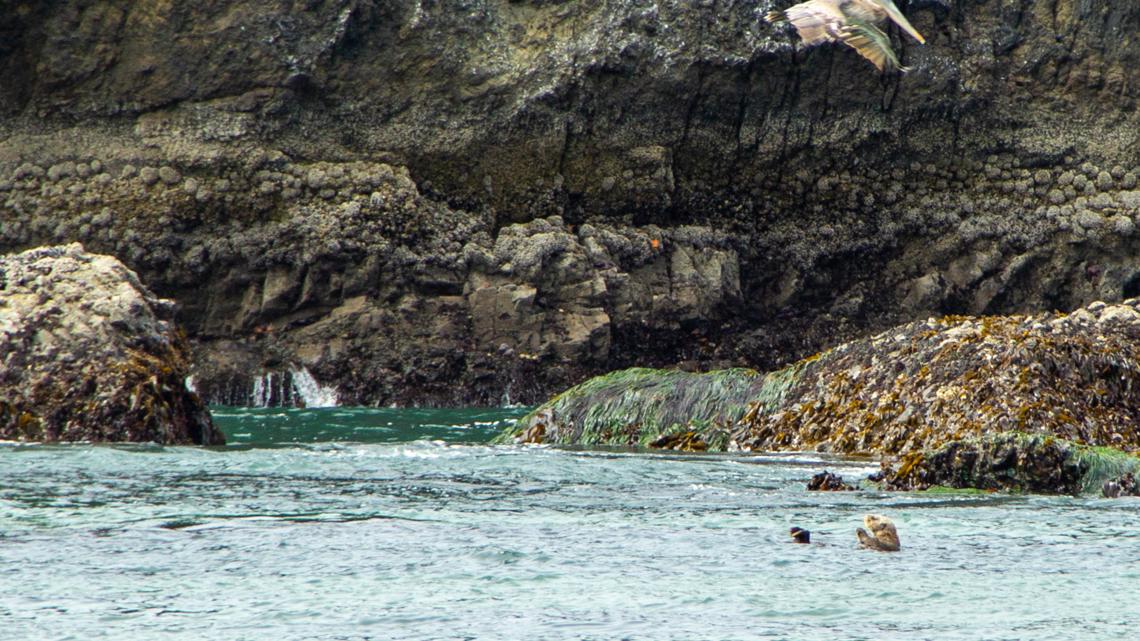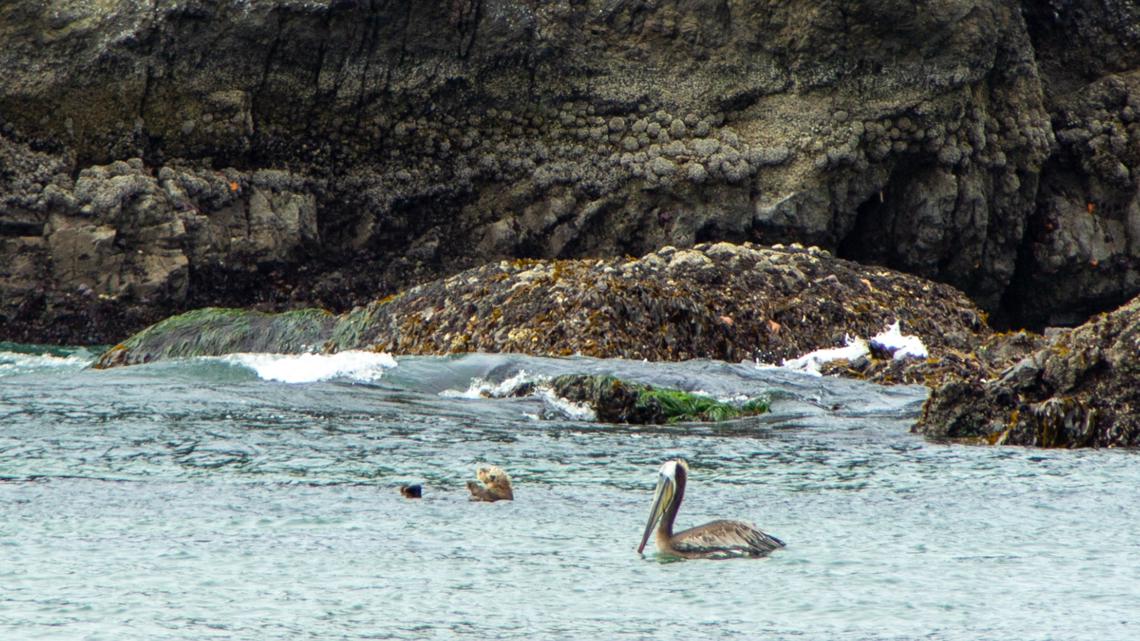CANNON BEACH, Ore. — Two sea otters were spotted at Ecola Point in Cannon Beach. An Oregon nonprofit based in Siletz, the Elakha Alliance, said volunteers first saw the otters on Friday. The sighting was then confirmed by Elakha Alliance's Chanel Hason, a marine biologist, who observed the pair swimming and foraging.
Elakha Alliance said that though five to six dead sea otters wash up annually along the coast, seeing live ones are rare, since they were hunted to near-extinction for their fur, which they rely on to keep warm, by the early 1900s. Since there, there has been no established population along Oregon's coast.


These otters are the first "significant" sighting since 2021, and likely swam south from Washington state's Olympic coast, where approximately 2,000 of them live.
Sea otters are not migratory, the nonprofit continued, which is why they have not naturally rebounded in Oregon waters.
“We are thrilled about this rare and wonderful sighting,” said Jane Bacchieri, executive director of the Elakha Alliance. “It highlights the resilience of sea otters and the potential for their return to the Oregon coast. This event also underscores the importance of ongoing conservation efforts for our nearshore marine ecosystems.”


Sea otters, though they can walk on land, can live exclusively in the water. They are native to the North Pacific Ocean's northern and eastern coasts, and are North America’s smallest marine mammal.
Sea otters are a keystone species because they eat sea urchins, which devour kelp forests. The decline in kelp then affects multiple species that rely on them for food and shelter, including zooplankton and mysid shrimp, which make up a big part of gray whales' diets. With the die-off of sea stars, sea urchins have run rampant, destroying kelp beds and forests already threatened by climate change.
In January of last year, a nonprofit group asked the U.S. Fish and Wildlife Service to reintroduce sea otters to a stretch of the West Coast from Northern California to Oregon, calling the move, if it happened, an "unparalleled conservation success story."